- Home
- Heather Graham
Dying Breath Page 11
Dying Breath Read online
Page 11
“We’re looking for a place where bodies might have been dumped after they had been hanged,” Vickie said.
“And no one knows precisely where those bodies might be,” Barnes said. “Forgive me—it’s not that I have no faith, Miss Preston, but we need an army on this. We don’t have an army, but I’m taking every officer I can get.”
“And that’s good, Detective Barnes,” Vickie said. “I’m not offended. I don’t have a precise answer for you.”
Barnes moved on, ready to meet with other officers.
Griffin and Jackson looked at Vickie.
“So an army is coming in—we’ll stick together,” Jackson said.
“Vickie?” Griffin asked quietly.
She pointed down Washington Street. “Let’s head that way—I think.”
* * *
It was a long, long late afternoon and evening.
The wear and tear, Griffin thought, was beginning to show on many of those called in to search.
Officers combed the area. For the most part, residents, shop owners and workers—white collar and blue—were more than willing to let the law in, to help, to try to think of any place where a woman might have been boxed up in a coffin-like manner and left.
Barnes worked the officers on a grid while Jackson, Vickie, the ghost of Dylan Ballantine and Griffin went on a different concept of a grid, following her rationale through history.
She spent some time speaking with the priest at the church—a history buff himself—and he talked about the earliest buildings in the area.
They searched the church and the crypts and all possible burial areas.
Lawns, T stations, waterworks, cables, roadways, homes and offices.
Near midnight, they were all exhausted.
Vickie looked tired and frustrated as they stood on the street, not far from the church. She was frowning, deep in thought.
“What is it?” he asked her.
She pointed across the street. “The Pine house, over there,” she said.
“We were there earlier,” he reminded her. “And, yes, it seemed just right. It’s what remains of an old farm. Still owned by the family of the man who had it built in the nineteenth century. We did go in, remember? The guy just stores stuff there—he let us tear apart his basement.”
“I know—it’s just in the right place,” Vickie said. “And...I just think we’re missing something. It feels right,” she added softly.
“Vickie knows her stuff,” Dylan said softly. Even he looked weary. Griffin supposed ghosts could become just as tired and frustrated as—as when they had been living. He was actually surprised Dylan was still with them; he might have left at any time.
“The Pine house,” Jackson murmured. “Between an ice cream shop with happy, dancing, cartoon cow stickers on the windows—and the biker bar. I guess there’s kind of a break between the two. Vickie, we’re going to have to call Mr. Pine back and it is nearly midnight.”
“We’ve been everywhere,” she said. “Well, it would be impossible for us to have been everywhere. But there’s something we missed somehow. We’re looking for holes in basement floors, recently dug graves, dump sites... I think these Undertakers changed up the game. I think we had to have missed something and the remains of that old farmhouse is where we’re going to figure out what they did.”
“I’ll call Mr. Pine again,” Griffin said. And he did so.
The ghost of Dylan Ballantine said softly, “When you’ve got a real feeling for something, you have to go with it.”
“Well, it’s not just me. Father Adair—the man I was speaking with at the church—said there was something about the house that always made him uneasy.”
“Fiona West hasn’t been missing that long,” Jackson pointed out.
“No, but maybe...okay, this sounds weird. Maybe the house is old and therefore creepy and perhaps even invites bad things to happen,” Vickie said.
Dylan sniffed loudly. “That’s half of Boston!”
Vickie sighed with great patience. “Most places that are really old are well-preserved and well-tended,” she said. “I do have a feeling. One of those intuition things, I guess. I didn’t like it when we were in there. I swear—we missed something.”
She seemed very certain. Griffin had felt his admiration for her growing throughout the day. She was tireless—frustration didn’t seem to bring her to anger. When one solution didn’t work, she looked for another.
Oliver Pine seemed to be a decent man. Griffin first woke his wife, and then the man came to the phone sounding as if he’d been disrupted from a deep sleep. He assured Griffin that he didn’t live far at all—he’d be there in a matter of minutes.
They headed across the street and back over to the east side of Washington Street. As they did so, Vickie looked at him. “I’m sorry. I mean, if we don’t find something...”
“If we don’t find anything, it’s okay. That’s the way this works. We look and look. Sometimes we’re lucky quickly. Sometimes, we have no luck at all. But when you feel as strongly as you do now, it’s better to take the chance,” he said.
“I’m just not sure where we didn’t look,” Dylan murmured.
They all ignored him; a car drove up. It was Oliver Pine. He parked and hurried out to open the locks on the house.
“Mr. Pine, we really can’t thank you enough,” Jackson told him.
“Hey!” the man said, shaking his head. “To be asked to help? No problem. I stand here a grateful man that it’s not a member of my family. Anyway, I sure couldn’t guarantee that there wasn’t something in here; we never lived in the place. I inherited it from my grandfather, but it’s not like it was really livable. Naked lightbulbs, horrible plumbing—I turn the water off in winter. There are two bathrooms from the 1940s...the house was chopped up years ago when plots were sold off for the buildings on either side. I guess I should just donate it to some historic board—if anyone wants it. There are some cool old fixtures, and stuff like that, but...” He broke off with a shrug. “I can just give you the keys. I really only come here when we need somewhere to put things. I actually keep the snowblower in the parlor—as you saw earlier.”
“Thank you. We’ll hopefully not be long,” Jackson said. “If you want to get home, we will make sure your keys are returned.”
“Thanks.” Pine was young-looking. Griffin had looked him up to find out about him and the old structure earlier. He was actually forty; the father of three boys.
Jackson took the house keys from Pine and started to walk him to the door. Griffin was watching Vickie as she stared at a wall of chain-store half-empty bookcases across the room.
“Wait!” she said suddenly.
Pine and Jackson halted, swinging around to look at Vickie.
“Mr. Pine, you said that you’re almost never here, right?”
“No, I’m sorry to say. I’m sure the historic board people don’t like me very much. But it’s Boston, and other places around here may be so much older. What’s left of this place isn’t really relevant to any major events in history, so you just kind of go on, you know what I mean?”
“Mr. Pine, what about those bookcases?”
“They’re old, but not that old. I mean, they’re not new or anything. My dad put them in when I was a kid—they came in one of those assemble-it-yourself kits. I don’t think they’re even real wood,” Pine said.
“Do they attach to the wall?” Vickie asked him.
“Uh, no. They never did. We meant to work on this place. Then when my dad died, my mom just tried to keep it all together, you know?”
“Of course,” Vickie said. She was already walking to the bookcases. Griffin, frowning, hurried over to her.
“No dust,” he noted, “not here, not on this end. And there is dust on the other end.”
He didn’t have to say anything else—go into any kind of a lengthy explanation of the subtle signs that someone had been there, that the bookcases against the wall had been moved recently, and that they needed to look further.
Jackson was already by his side.
“They’ve been moved—those bookcases?” Oliver Pine said, confused. “The only people I know about who have been in here for years have been my wife and me. And my friend, Barney, when he helped me bring in the old refrigerator. We didn’t even look at the bookcases. Maybe I am a terrible property owner, but the kids...life is busy, you know?”
“Sure. Sorry, we’re messing up your place,” Griffin said. But he didn’t stop. A few of the dusty, old books in the cases fell out.
“Uh, whatever,” Pine said.
The place had naked lightbulbs hanging on wires from the ceiling. The light was vivid and garish.
Vickie walked up to the wall. “It is paneling,” she said, and turned to them all. “Looks like there’s a strange crack in the wood there. Or not a crack...just a bad alignment.”
“Bad alignment?” Dylan said, snorting. “A two-year-old could have done better work.”
“Renovations here have been pretty cheap and—schlocky,” Pine said, oblivious to the presence of Dylan Ballantine.
“Mr. Pine, we’re about to rip up your wall,” Jackson said. “If you wish us to stop, legally, we have to do as you ask, and then pursue a warrant.”
“But,” Griffin added, “if we take that time, a woman may die.”
“She may only have minutes left,” Vickie whispered.
Pine stared at them, shell-shocked, a man truly lost.
But then he spoke with conviction.
“Rip away,” he said. “I don’t live here, and hell, it needs to be fixed and spruced up a zillion times over as it is.”
Griffin saw one of the plywood slats that should have been part of the bookcase leaning against an old vacuum. He picked it up to use as leverage, thinking it might well break and shatter before it broke the paneling. To his surprise, it didn’t; the paneling gave as if it had barely been set in place.
Behind the wall was a space that ran the length of the room—about fifteen feet. It was perhaps three feet deep.
There was definitely...a body.
Vickie let out a sharp gasp.
It wasn’t Fiona West; this body had been in the wall a very long time. It was partially skeletal.
It also appeared to be partially mummified.
“Oh, my God!” Oliver Pine breathed.
Griffin began to tear at the paneling with his hands. Jackson joined in, then Oliver Pine—and then Dylan, ineffective with his ghostly hands, but so determined to help.
Then, suddenly, Dylan gave up at the tearing and working. He grinned at Vickie—and appeared to walk right through the wall.
He came back out.
“More bodies,” he said grimly, as the others continued to work.
They kept at it with renewed energy.
Dylan was right.
Another body appeared. And then another.
They continued in something like a frenzy, ripping out the length of the poorly paneled wall to see the space behind.
The bodies were all in various stages of decay and natural preservation; they were braced up by wooden stakes, most with hair still falling around their macabre half skeletal, half stretched-skin faces.
Three, four, five, six...
They seemed to stare out with disarticulated jaws, eyes black and cavernous, as if they had walked out of a horror movie, macabre and horrifically eerie.
Seven, eight...
“Not Fiona,” Vickie said, more anxious that they should find a living woman than shocked or terrified by what they had found so far. “We’re running out of time.”
Griffin glanced at Vickie; she was watching nervously. Every one of them was stunned, but she wasn’t screaming, she wasn’t running—nor was she getting in the way when it was apparent that another worker wasn’t needed.
“There! There—right there!” Vickie gasped.
She was pointing to the far end of the wall. The last body.
And she was right. At the very last, at the end of the space behind the false wall, they found something different—a human-shaped bundle that might be Fiona West.
She was wrapped up as if in a shroud. They pulled her out as quickly and gently as possible, tearing the fabric from her.
Jackson instantly went for his phone, calling for an ambulance, as Vickie dropped down by Griffin’s side, working at tearing away the material around the woman.
Vickie was on the floor, staring at him across the body of the woman, her green eyes immense. “She’s breathing, right, she’s breathing?”
Yes, the woman was breathing.
Griffin felt for a pulse; Fiona was alive. Her pulse was faint and weak, but it was there. And she was definitely breathing on her own.
“She’s alive,” he said.
Vickie closed her eyes and sank back on her haunches, letting out a swift sigh of relief.
“Can I do anything, can I help, should we...be doing something?” she asked.
“She’s breathing on her own—we need to keep her still until the EMTs arrive,” he said. “Just—just watch her.”
“Oh, my God. Oh, my God. Oh, my God!” Oliver Pine said, half sinking and half falling to the floor.
“Yeah, you idiot! You are a lousy property owner,” Dylan said.
“He’s been trying very hard to help!” Vickie said, looking straight at Dylan.
“But there were already bodies in his wall!” Dylan said.
Thankfully, Oliver Pine wasn’t hearing a word—he was just staring at the bodies that remained lined up in the space behind the false wall.
Luckily, they all seemed to have passed on peacefully—they weren’t hanging around in ghostly form, not that Vickie could sense, anyway.
“Someone in my family was a mass murderer!” Pine wailed suddenly.
It was midnight and police were still combing the area. It seemed it wasn’t more than two minutes before they heard sirens, and other officers began to arrive, Detective David Barnes at the head. Griffin helped Vickie to her feet so that they could draw away and leave the EMTs to work on Fiona West.
“What the bloody hell?” David Barnes demanded, reaching the room.
Jackson Crow stepped over to apprise him of the situation.
An officer escorted Oliver Pine outside. Griffin watched as he was led out.
“The historic board is really going to have something to say about this,” he said as he walked away, appearing completely disoriented and stunned, a man in shock. “Are the bodies now historic? Who the hell were they?” He turned to the officer escorting him. “You know that I didn’t do that, right? I mean, oh, my God!”
“Yes, sir. We know you couldn’t have done—that,” the officer said.
Jackson walked over to where Vickie and Griffin stood together. “I can deal with this. I’ll write up a report. We can meet with Barnes at his station tomorrow for anything else that’s needed. Why don’t you two leave, and get some rest. Vickie, you’ve been invaluable to our team.”
“I’m truly grateful I could help,” she said, looking from Jackson to Griffin and then around the room, now flooded with police.
She lowered her voice.
“I never thought that this...thing with the dead could be useful, but...wait, actually, tonight it had nothing to do with the dead, it was the reverend I spoke to, it was where the house was, it was...maybe it was the dead. If we didn’t all see Dylan...”
“You’re welcome,” Dylan said, proud of himself as he came to them. He didn’t drift, or appear to float on the air. He seemed to swagger.
&
nbsp; Setting ghostly arms around Vickie and Griffin, he said, “I’m very happy to be of service—and you guys did save my mom. And I’m off—back to watch over the family. Call me when you need me. Oh, wait. I can’t answer a phone. Not to worry. I’ll be back.”
Vickie watched him go. “How can a ghost be such a wiseass?” she murmured.
“He’s still a teenager,” Jackson reminded her. “You could probably use some rest.”
“You could both use showers,” she said, looking from Jackson to Griffin and managing something of a smile.
Griffin looked at Jackson—his partner on this case was covered in dust, plaster, wood chips and more.
He assumed he looked the same. And, observing Vickie again, he saw that she hadn’t escaped the fallout from the false wall.
“Let me get you on home,” he told Vickie.
“Thank you,” she murmured.
She was staring at the wall again. Griffin followed her line of vision.
The panels were all down, only broken sections of balsa and plaster remained here and there along the structural segments.
It seemed that a field of dead stared out at them. Fragments and whole pieces of clothing clung to the oddly preserved bodies; some appeared as if they could walk right out. With others, it seemed that they would fall into a pile of bones at the slightest touch.
What the hell had happened here? When had it happened?
How had the killers stumbled upon the cache?
The dead just gaped at them in a reproach silenced by decades.
Vickie shivered.
Then she turned and hurried out the door.
* * *
Uncanny! Absolutely, frigging, unbelievably uncanny!
Taker had watched the developments for some time. He’d kept to the shadows, inside stores, along walls and crevices, but he hadn’t been particularly concerned. If he’d been seen, there was no reason he shouldn’t be where he was. The streets here were filled with coffeehouses, restaurants and shops.
At first, he’d watched with amusement. No, frankly, he’d watched with glee.
He’d even called Under to say how fantastic the find had been, how cool, and he’d described the police and the FBI running around like ants.

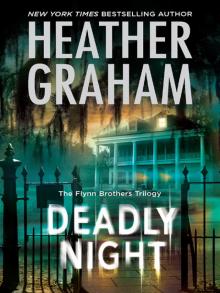 Deadly Night
Deadly Night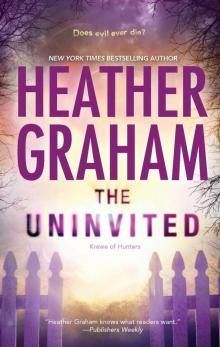 The Uninvited
The Uninvited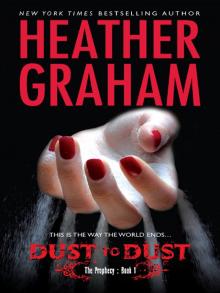 Dust to Dust
Dust to Dust Heart of Evil
Heart of Evil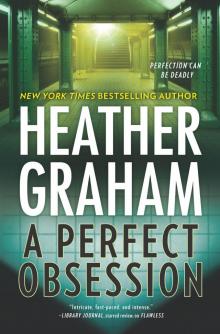 A Perfect Obsession
A Perfect Obsession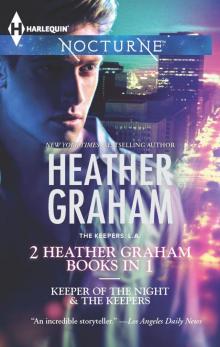 The Keepers
The Keepers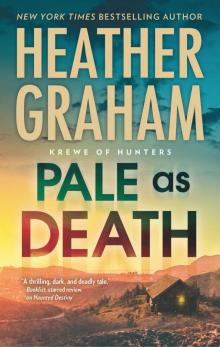 Pale as Death
Pale as Death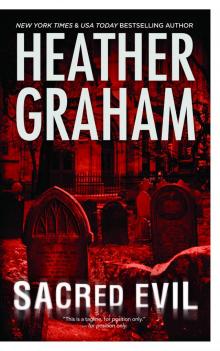 Phantom Evil
Phantom Evil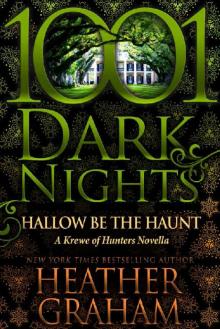 Hallow Be the Haunt
Hallow Be the Haunt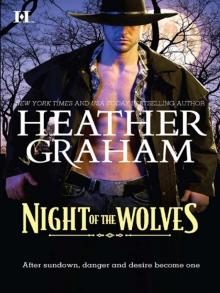 Night of the Wolves
Night of the Wolves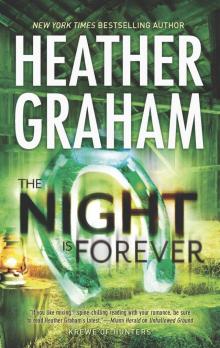 The Night Is Forever
The Night Is Forever Golden Surrender
Golden Surrender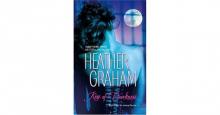 Kiss of Darkness
Kiss of Darkness Beneath a Blood Red Moon
Beneath a Blood Red Moon A Dangerous Game
A Dangerous Game Ghost Shadow
Ghost Shadow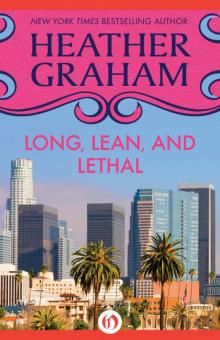 Long, Lean, and Lethal
Long, Lean, and Lethal Fade to Black
Fade to Black The Rising
The Rising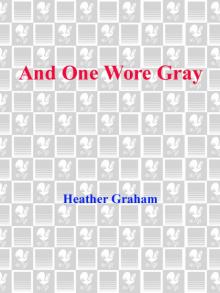 And One Wore Gray
And One Wore Gray Rebel
Rebel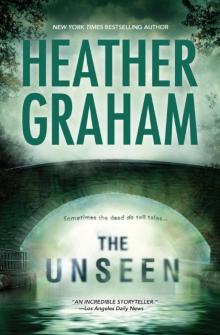 The Unseen
The Unseen The Night Is Watching
The Night Is Watching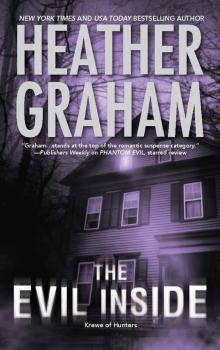 The Evil Inside
The Evil Inside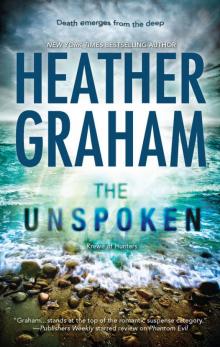 The Unspoken
The Unspoken The Night Is Alive
The Night Is Alive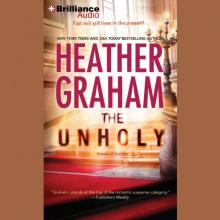 The Unholy
The Unholy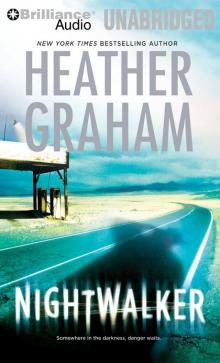 Nightwalker
Nightwalker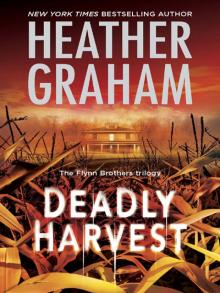 Deadly Harvest
Deadly Harvest An Angel for Christmas
An Angel for Christmas A Pirate's Pleasure
A Pirate's Pleasure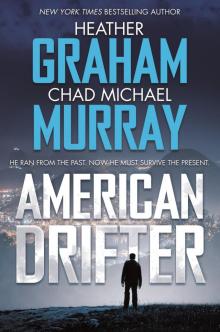 American Drifter
American Drifter Realm of Shadows
Realm of Shadows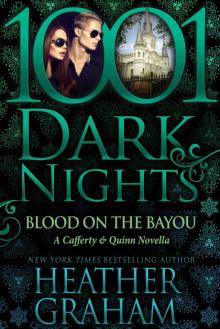 Blood on the Bayou
Blood on the Bayou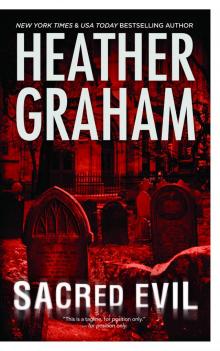 Sacred Evil
Sacred Evil Dying to Have Her
Dying to Have Her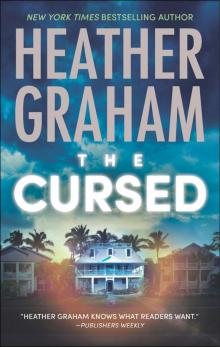 The Cursed
The Cursed Captive
Captive Hurricane Bay
Hurricane Bay Drop Dead Gorgeous
Drop Dead Gorgeous Ghost Memories
Ghost Memories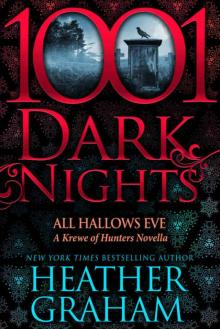 All Hallows Eve
All Hallows Eve Dying Breath
Dying Breath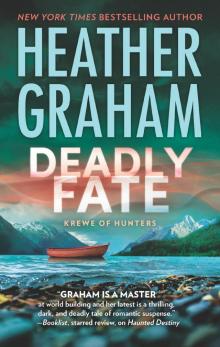 Deadly Fate
Deadly Fate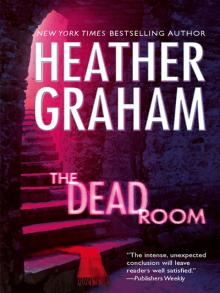 The Dead Room
The Dead Room Lord of the Wolves
Lord of the Wolves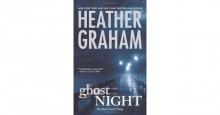 Ghost Night
Ghost Night Ghost Walk
Ghost Walk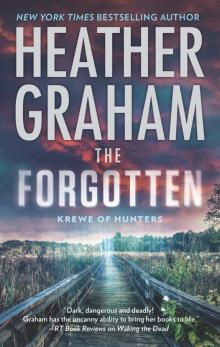 The Forgotten
The Forgotten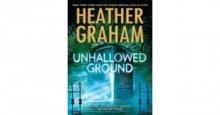 Unhallowed Ground
Unhallowed Ground One Wore Blue
One Wore Blue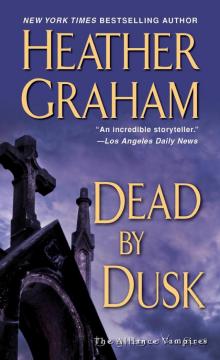 Dead By Dusk
Dead By Dusk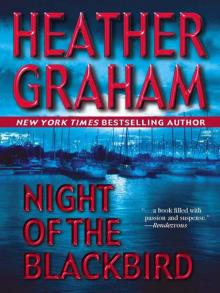 Night of the Blackbird
Night of the Blackbird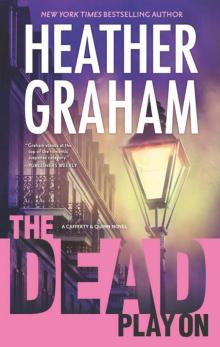 The Dead Play On
The Dead Play On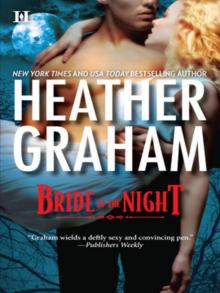 Bride of the Night
Bride of the Night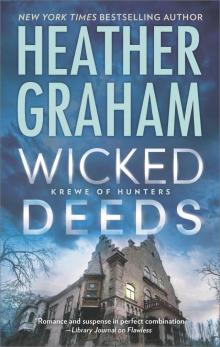 Wicked Deeds
Wicked Deeds The Forbidden
The Forbidden Triumph
Triumph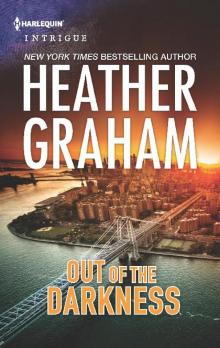 Out of the Darkness
Out of the Darkness Love Not a Rebel
Love Not a Rebel The Last Noel
The Last Noel Tall, Dark, and Deadly
Tall, Dark, and Deadly The Death Dealer
The Death Dealer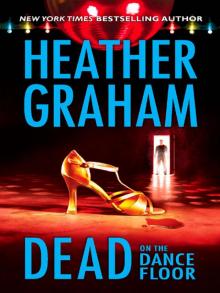 Dead on the Dance Floor
Dead on the Dance Floor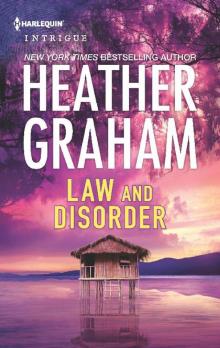 Law and Disorder
Law and Disorder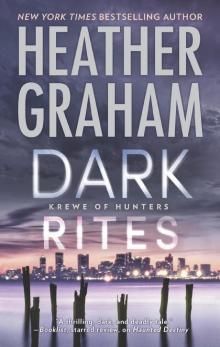 Dark Rites
Dark Rites New Year's Eve
New Year's Eve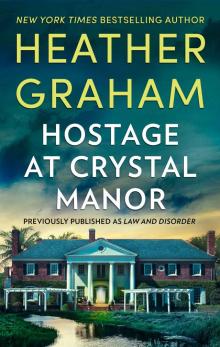 Hostage At Crystal Manor
Hostage At Crystal Manor And One Rode West
And One Rode West Home in Time for Christmas
Home in Time for Christmas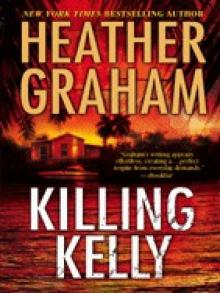 Killing Kelly
Killing Kelly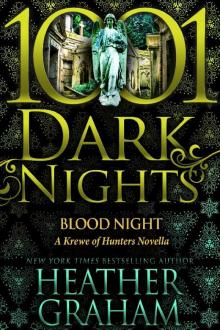 Blood Night
Blood Night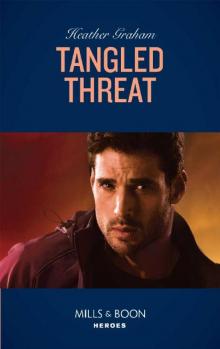 Tangled Threat (Mills & Boon Heroes)
Tangled Threat (Mills & Boon Heroes)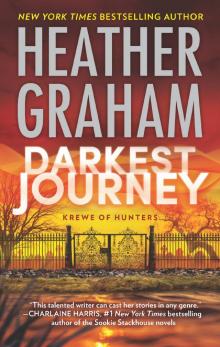 Darkest Journey
Darkest Journey Glory
Glory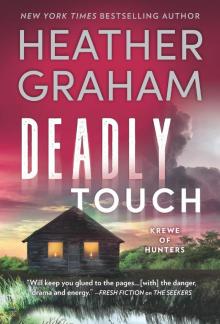 Deadly Touch
Deadly Touch An Unexpected Guest
An Unexpected Guest Night of the Vampires
Night of the Vampires Seize the Wind
Seize the Wind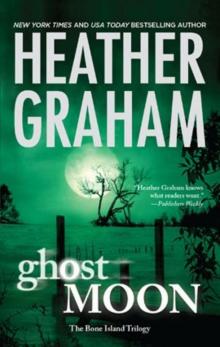 Ghost Moon
Ghost Moon The Vision
The Vision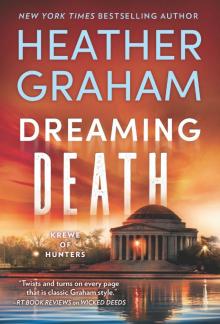 Dreaming Death
Dreaming Death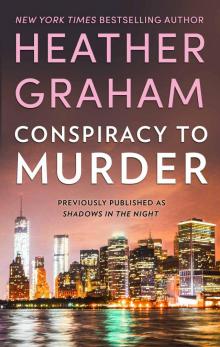 Conspiracy to Murder
Conspiracy to Murder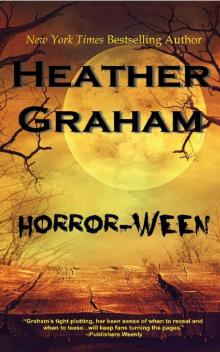 Horror-Ween (Krewe of Hunters)
Horror-Ween (Krewe of Hunters)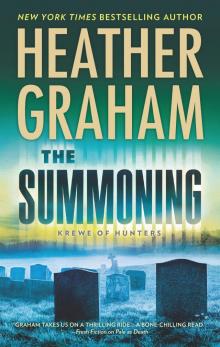 The Summoning
The Summoning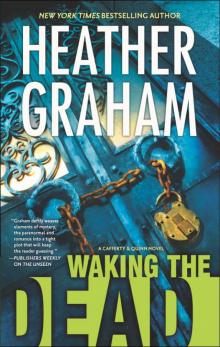 Waking the Dead
Waking the Dead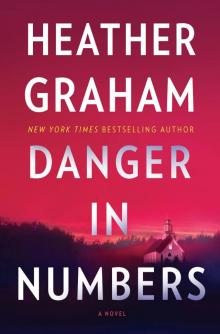 Danger in Numbers
Danger in Numbers The Hidden
The Hidden Sweet Savage Eden
Sweet Savage Eden Tangled Threat ; Suspicious
Tangled Threat ; Suspicious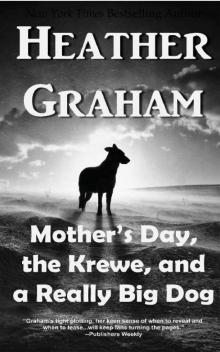 Mother's Day, the Krewe, and a Really Big Dog
Mother's Day, the Krewe, and a Really Big Dog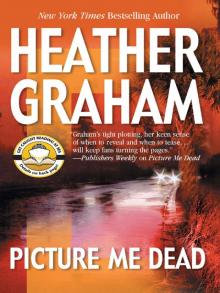 Picture Me Dead
Picture Me Dead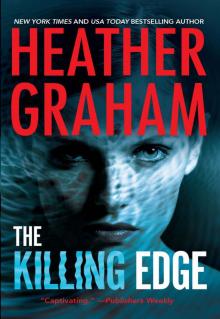 The Killing Edge
The Killing Edge St. Patrick's Day
St. Patrick's Day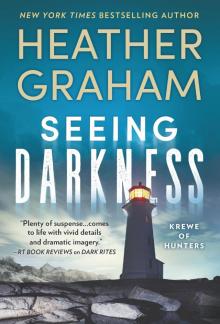 Seeing Darkness
Seeing Darkness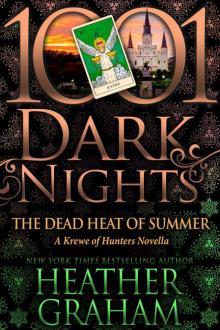 The Dead Heat of Summer: A Krewe of Hunters Novella
The Dead Heat of Summer: A Krewe of Hunters Novella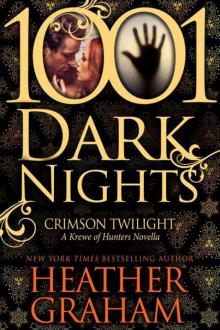 Crimson Twilight
Crimson Twilight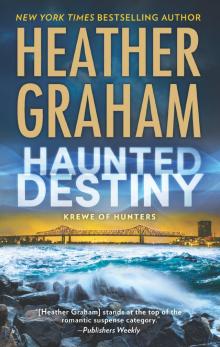 Haunted Destiny
Haunted Destiny Devil's Mistress
Devil's Mistress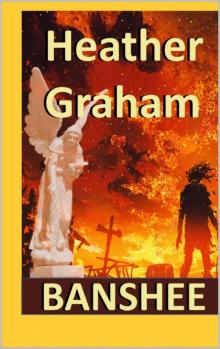 Banshee
Banshee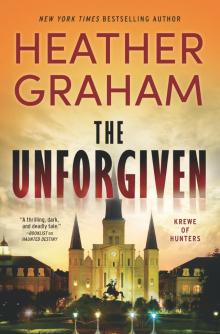 The Unforgiven
The Unforgiven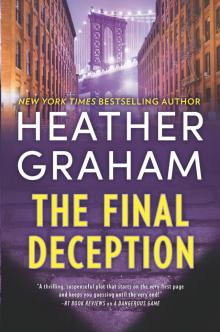 The Final Deception
The Final Deception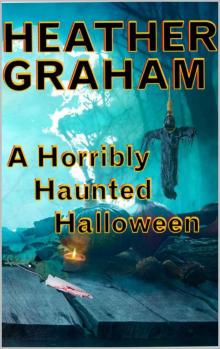 A Horribly Haunted Halloween
A Horribly Haunted Halloween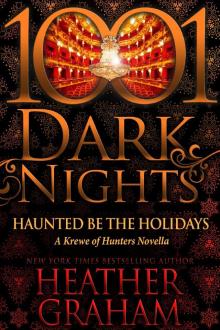 Haunted Be the Holidays
Haunted Be the Holidays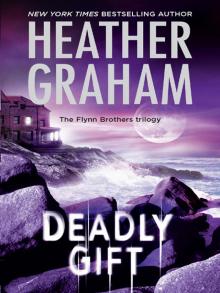 Deadly Gift
Deadly Gift Easter, the Krewe and Another Large White Rabbit
Easter, the Krewe and Another Large White Rabbit Haunted
Haunted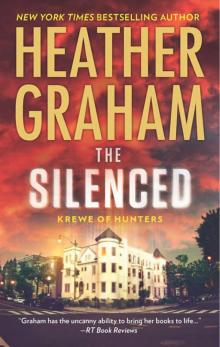 The Silenced
The Silenced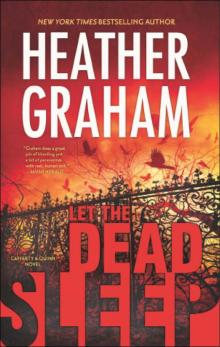 Let the Dead Sleep
Let the Dead Sleep Christmas, the Krewe, and Kenneth
Christmas, the Krewe, and Kenneth Big Easy Evil
Big Easy Evil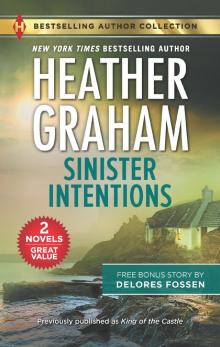 Sinister Intentions & Confiscated Conception
Sinister Intentions & Confiscated Conception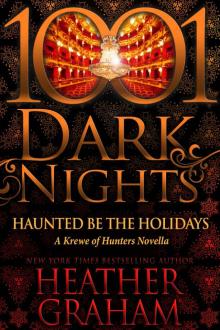 Haunted Be the Holidays: A Krewe of Hunters Novella
Haunted Be the Holidays: A Krewe of Hunters Novella Blood Red
Blood Red A Perilous Eden
A Perilous Eden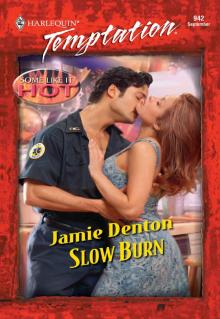 Slow Burn
Slow Burn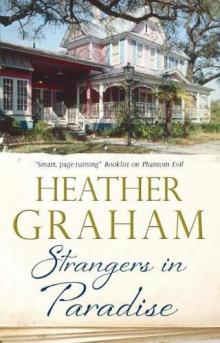 Strangers In Paradise
Strangers In Paradise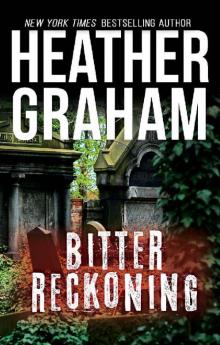 Bitter Reckoning
Bitter Reckoning Krewe of Hunters, Volume 1: Phantom Evil ; Heart of Evil ; Sacred Evil ; The Evil Inside
Krewe of Hunters, Volume 1: Phantom Evil ; Heart of Evil ; Sacred Evil ; The Evil Inside Do You Fear What I Fear?
Do You Fear What I Fear?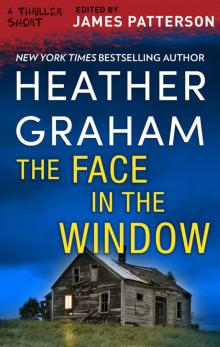 The Face in the Window
The Face in the Window Krewe of Hunters, Volume 3: The Night Is WatchingThe Night Is AliveThe Night Is Forever
Krewe of Hunters, Volume 3: The Night Is WatchingThe Night Is AliveThe Night Is Forever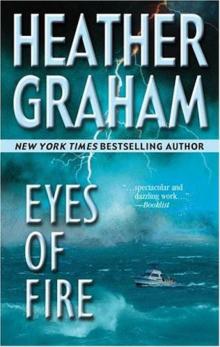 Eyes of Fire
Eyes of Fire Apache Summer sb-3
Apache Summer sb-3 Sensuous Angel
Sensuous Angel In the Dark
In the Dark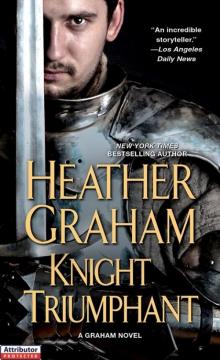 Knight Triumphant
Knight Triumphant Hours to Cherish
Hours to Cherish Tender Deception
Tender Deception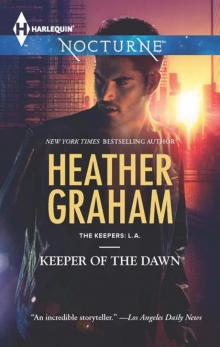 Keeper of the Dawn tkl-4
Keeper of the Dawn tkl-4 Apache Summer
Apache Summer Between Roc and a Hard Place
Between Roc and a Hard Place Echoes of Evil
Echoes of Evil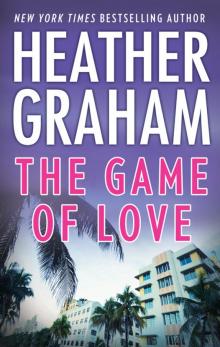 The Game of Love
The Game of Love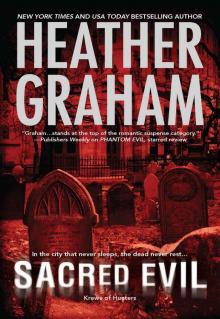 Sacred Evil (Krewe of Hunters)
Sacred Evil (Krewe of Hunters) Bougainvillea
Bougainvillea Tender Taming
Tender Taming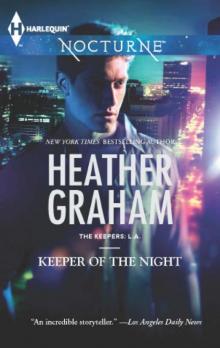 Keeper of the Night (The Keepers: L.A.)
Keeper of the Night (The Keepers: L.A.) Lonesome Rider and Wilde Imaginings
Lonesome Rider and Wilde Imaginings Lucia in Love
Lucia in Love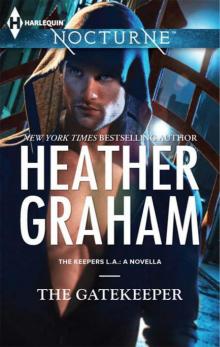 The Gatekeeper
The Gatekeeper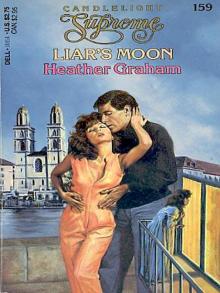 Liar's Moon
Liar's Moon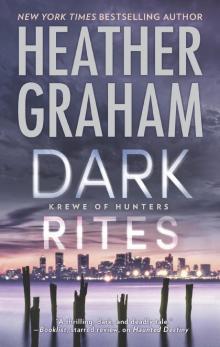 Dark Rites--A Paranormal Romance Novel
Dark Rites--A Paranormal Romance Novel A Season for Love
A Season for Love Krewe of Hunters, Volume 6: Haunted Destiny ; Deadly Fate ; Darkest Journey
Krewe of Hunters, Volume 6: Haunted Destiny ; Deadly Fate ; Darkest Journey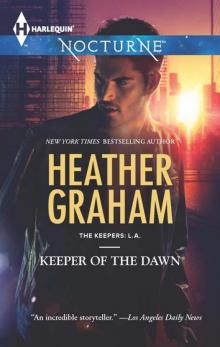 Keeper of the Dawn (The Keepers: L.A.)
Keeper of the Dawn (The Keepers: L.A.)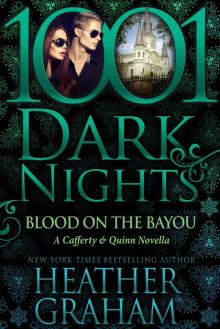 Blood on the Bayou: A Cafferty & Quinn Novella
Blood on the Bayou: A Cafferty & Quinn Novella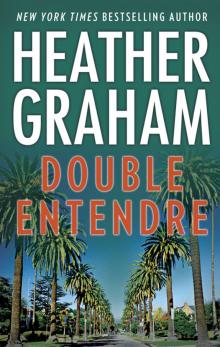 Double Entendre
Double Entendre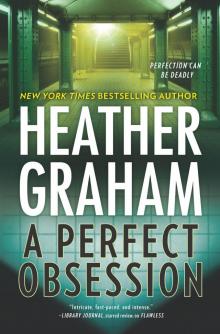 A Perfect Obsession--A Novel of Romantic Suspense
A Perfect Obsession--A Novel of Romantic Suspense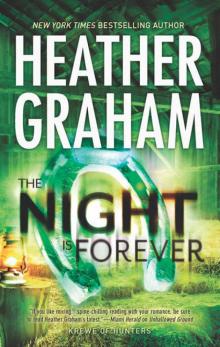 The Night Is Forever koh-11
The Night Is Forever koh-11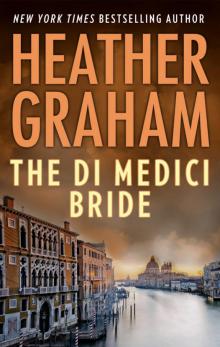 The Di Medici Bride
The Di Medici Bride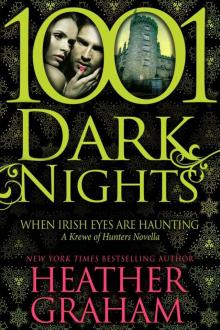 When Irish Eyes Are Haunting: A Krewe of Hunters Novella
When Irish Eyes Are Haunting: A Krewe of Hunters Novella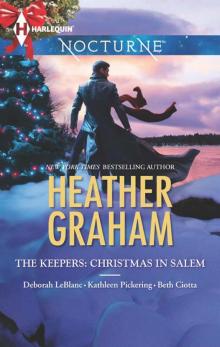 The Keepers: Christmas in Salem: Do You Fear What I Fear?The Fright Before ChristmasUnholy NightStalking in a Winter Wonderland (Harlequin Nocturne)
The Keepers: Christmas in Salem: Do You Fear What I Fear?The Fright Before ChristmasUnholy NightStalking in a Winter Wonderland (Harlequin Nocturne)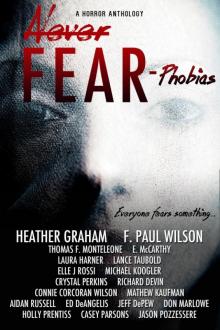 Never Fear
Never Fear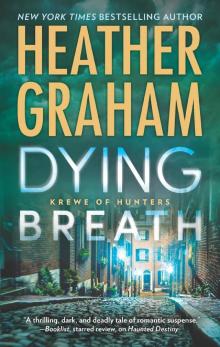 Dying Breath--A Heart-Stopping Novel of Paranormal Romantic Suspense
Dying Breath--A Heart-Stopping Novel of Paranormal Romantic Suspense If Looks Could Kill
If Looks Could Kill This Rough Magic
This Rough Magic Heather Graham's Christmas Treasures
Heather Graham's Christmas Treasures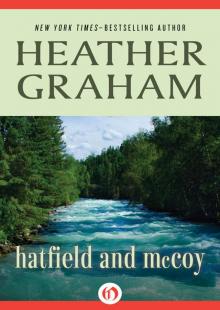 Hatfield and McCoy
Hatfield and McCoy The Trouble with Andrew
The Trouble with Andrew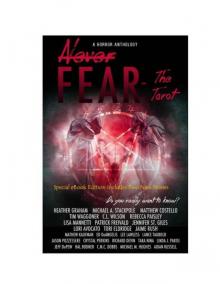 Never Fear - The Tarot: Do You Really Want To Know?
Never Fear - The Tarot: Do You Really Want To Know?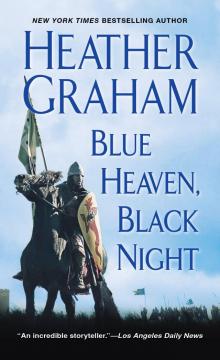 Blue Heaven, Black Night
Blue Heaven, Black Night Forbidden Fire
Forbidden Fire Come the Morning
Come the Morning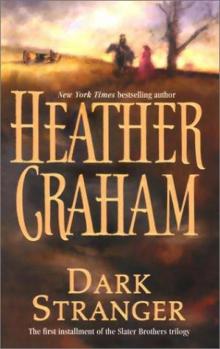 Dark Stranger sb-4
Dark Stranger sb-4 Lie Down in Roses
Lie Down in Roses Red Midnight
Red Midnight Krewe of Hunters Series, Volume 5
Krewe of Hunters Series, Volume 5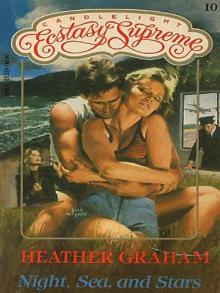 Night, Sea, And Stars
Night, Sea, And Stars Snowfire
Snowfire Quiet Walks the Tiger
Quiet Walks the Tiger Mistress of Magic
Mistress of Magic For All of Her Life
For All of Her Life Runaway
Runaway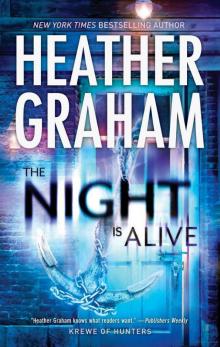 The Night Is Alive koh-10
The Night Is Alive koh-10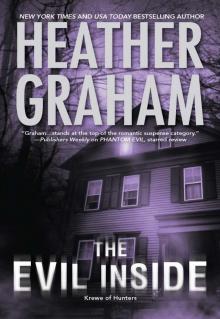 The Evil Inside (Krewe of Hunters)
The Evil Inside (Krewe of Hunters)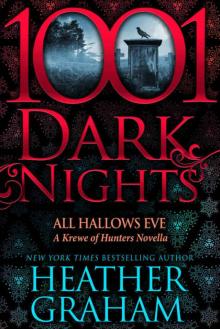 All Hallows Eve: A Krewe of Hunters Novella (1001 Dark Nights)
All Hallows Eve: A Krewe of Hunters Novella (1001 Dark Nights) Tomorrow the Glory
Tomorrow the Glory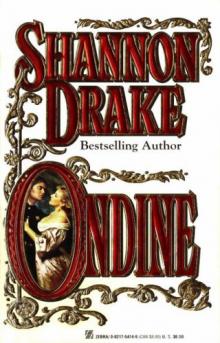 Ondine
Ondine Angel of Mercy & Standoff at Mustang Ridge
Angel of Mercy & Standoff at Mustang Ridge Bride of the Tiger
Bride of the Tiger When Next We Love
When Next We Love Heather Graham Krewe of Hunters Series, Volume 4
Heather Graham Krewe of Hunters Series, Volume 4 A Season of Miracles
A Season of Miracles Realm of Shadows (Vampire Alliance)
Realm of Shadows (Vampire Alliance) When We Touch
When We Touch Serena's Magic
Serena's Magic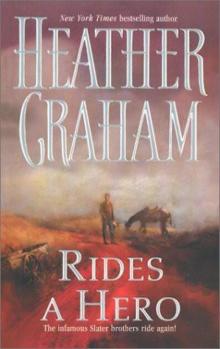 Rides a Hero sb-2
Rides a Hero sb-2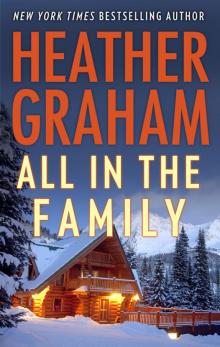 All in the Family
All in the Family Handful of Dreams
Handful of Dreams A Stranger in the Hamptons
A Stranger in the Hamptons Krewe of Hunters, Volume 2: The Unseen ; The Unholy ; The Unspoken ; The Uninvited
Krewe of Hunters, Volume 2: The Unseen ; The Unholy ; The Unspoken ; The Uninvited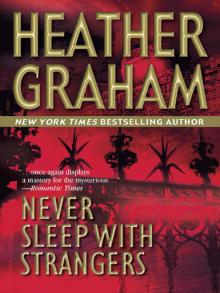 Never Sleep With Strangers
Never Sleep With Strangers Eden's Spell
Eden's Spell A Magical Christmas
A Magical Christmas Forever My Love
Forever My Love King of the Castle
King of the Castle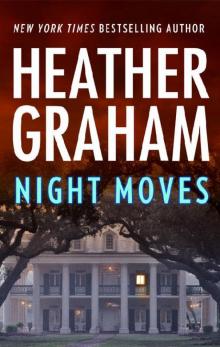 Night Moves (60th Anniversary)
Night Moves (60th Anniversary) The Island
The Island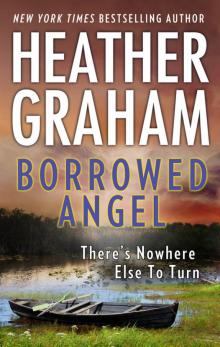 Borrowed Angel
Borrowed Angel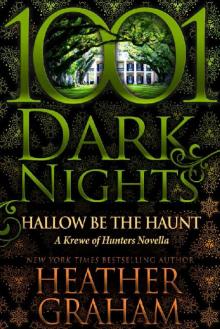 Hallow Be the Haunt: A Krewe of Hunters Novella
Hallow Be the Haunt: A Krewe of Hunters Novella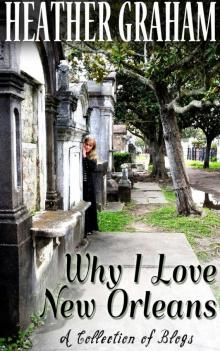 Why I Love New Orleans
Why I Love New Orleans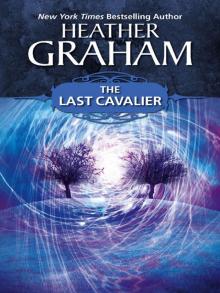 The Last Cavalier
The Last Cavalier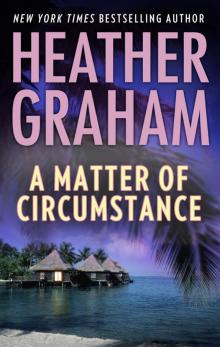 A Matter of Circumstance
A Matter of Circumstance Heather Graham's Haunted Treasures
Heather Graham's Haunted Treasures Tempestuous Eden
Tempestuous Eden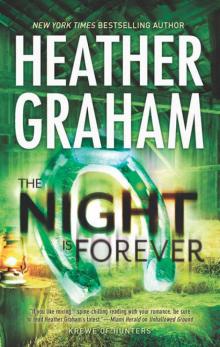 Krewe 11 - The Night Is Forever
Krewe 11 - The Night Is Forever